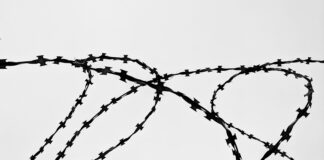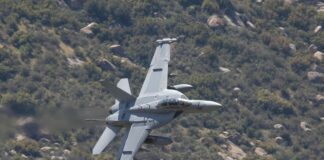Israeli Defense Minister Yoav Gallant: Powerful Insights Revealed is a compelling deep dive into one of the most influential figures shaping Israel’s security landscape today. Have you ever wondered what makes Israeli Defense Minister Yoav Gallant stand out among global defense leaders? This article uncovers the strategic mind and bold decisions behind his leadership, providing readers with exclusive access to powerful insights that are rarely discussed in mainstream media. From his military background to his current policies, we explore the key factors driving Israel’s defense strategies under Gallant’s command.
Yoav Gallant’s tenure as Israeli Defense Minister has been marked by decisive actions and innovative approaches to national security. What secret tactics does he use to maintain Israel’s edge in a highly volatile region? Dive into the world of Israeli defense policies 2024, where Gallant’s influence is reshaping everything from cyber defense initiatives to ground operations. You’ll discover how his experience as a former general informs his leadership style and decision-making process. Whether you’re a security analyst, a political enthusiast, or simply curious about Middle Eastern geopolitics, these insights offer a rare glimpse into the mind of a man steering one of the most complex defense apparatuses in the world.
In this article, we also tackle trending questions such as: How does Yoav Gallant balance diplomacy with military might? What are the implications of his strategies for regional stability? Stay tuned as we reveal exclusive facts about Israeli Defense Minister Yoav Gallant and his vision for the future of Israel’s defense forces. Don’t miss out on this must-read analysis packed with powerful keywords and up-to-the-minute information that will keep you ahead in understanding international security dynamics.
Top 7 Powerful Insights from Israeli Defense Minister Yoav Gallant on National Security
In recent years, Israeli Defense Minister Yoav Gallant has become a prominent figure in discussions about national security and defense strategies not only within Israel but around the world. His perspectives and policies have shaped how Israel approaches its complex security challenges. From his military background to his political career, Gallant offers powerful insights that reflect the realities of modern defense. This article dives into the top 7 powerful insights that Israeli Defense Minister Yoav Gallant shared regarding national security and why they matter for Israel and beyond.
1. The Importance of Preparedness in a Volatile Region
Gallant often emphasizes how Israel’s precarious geographic location demands constant readiness. The Middle East is a region marked by shifting alliances, ongoing conflicts, and emerging threats. According to him, Israel cannot afford to be complacent. “We must always prepare for the worst while hoping for peace,” Gallant stated in a recent interview. This means investing heavily in military technology, intelligence gathering, and training soldiers continuously. The history of Israel’s wars, from the 1948 War of Independence to the more recent conflicts in Gaza, show why preparedness isn’t just a strategy but survival.
2. Balancing Deterrence and Diplomacy
One of the more complex insights Gallant shares is the balance between deterrence and diplomacy. While Israel’s military strength serves as a deterrent against hostile neighbors and terrorist groups, Gallant acknowledges that diplomacy remains essential. He said, “Strong defense creates the conditions for negotiation, not the other way around.” This indicates a dual approach where Israel builds a credible defense capability to discourage attacks but also keeps diplomatic channels open to avoid unnecessary conflict. Comparing Israel’s approach with other countries shows this balance is difficult but crucial.
3. Cybersecurity as a Frontline Defense
Gallant points out that modern warfare extends beyond physical battlefields. Cybersecurity has become a frontline defense in national security. Israel is recognized globally for its advanced cyber capabilities, and the Defense Minister highlights this as a key area of focus. Cyber attacks could disrupt critical infrastructure, communications, and defense systems, so protecting these digital assets is vital. Practical examples include Israel’s response to cyber threats from groups like Hamas and Iranian hackers, which have attempted to breach government and military networks repeatedly.
4. The Role of Intelligence in Preventing Conflict
Intelligence gathering is another pillar in Gallant’s national security strategy. He believes that accurate and timely intelligence can prevent conflicts before they start. Israel’s intelligence agencies, such as Mossad and Shin Bet, have historically played crucial roles in thwarting terrorist plans and keeping the country safe. Gallant stresses that intelligence isn’t just about spying but also understanding regional dynamics and potential threats. This insight is practical because it shows how preemptive action often relies on the information collected behind the scenes.
5. The Significance of Military Innovation and Technology
Israel has long been known for its technological innovations in defense, and Gallant continues to push this agenda. He insists that investing in new technologies gives Israel a strategic edge. This includes advancements in missile defense systems like Iron Dome, which has saved countless lives by intercepting rockets. Additionally, drones, artificial intelligence, and advanced surveillance systems are part of the military’s evolving toolkit. Gallant’s insight here is clear: staying ahead technologically is not optional but necessary to counter threats efficiently.
6. Civil-Military Cooperation is Essential
Gallant often talks about the unique relationship between Israeli society and its military. Unlike many countries, Israel’s military service is mandatory for most citizens, creating a strong bond between civilians and the defense forces. He highlights this civil-military cooperation as a strength that enhances national resilience. For example, during crises like natural disasters or conflict, the military often assists civilian authorities. This interconnectedness helps Israel respond quickly and effectively to emergencies, making security a shared responsibility.
7. The Need for Regional Alliances and Partnerships
Finally, Gallant stresses the importance of building alliances beyond Israel’s borders. While the country faces many adversaries, it also has potential partners in the region and globally. He points to recent normalization agreements with some Arab nations as steps toward regional stability. Partnerships with the United States, Europe, and other allies are also critical for intelligence sharing and joint defense initiatives. Gallant believes that Israel cannot stand alone and must work with others to address common threats like terrorism and missile proliferation.
Summary Table of Yoav Gallant’s Top Insights on National Security
| Insight Number | Key Focus | Explanation | Example/Impact |
|---|---|---|---|
| 1 | Preparedness | Constant readiness due to regional volatility | Continuous military training and upgrades |
| 2 | Deterrence & Diplomacy | Balancing military strength with negotiation | Maintaining peace talks while preparing |
| 3 | Cybersecurity | Defense in digital domain | Protecting against cyber attacks |
How Yoav Gallant’s Leadership is Shaping Israel’s Defense Strategy in 2024
How Yoav Gallant’s Leadership is Shaping Israel’s Defense Strategy in 2024
In 2024, Israel’s defense landscape continues to evolve rapidly, influenced by new threats and changing geopolitical realities. At the forefront of this transformation is Yoav Gallant, the Israeli Defense Minister, whose leadership style and strategic decisions are making significant impacts on how Israel prepares for and responds to its security challenges. Gallant, a former general with decades of military experience, brings a unique perspective to the defense ministry, blending practical battlefield knowledge with political acumen. This article explores how his leadership is reshaping Israel’s defense approach in 2024, offering powerful insights into the nation’s security priorities.
Who is Yoav Gallant? Background and Military Career
Yoav Gallant’s experience spans over 40 years in the Israel Defense Forces (IDF). Before becoming the defense minister, he served as a commander in various elite units, including the Golani Brigade, and later held high-ranking posts in the IDF General Staff. His military career was marked by hands-on involvement in combat operations and strategic planning, which gave him a deep understanding of Israel’s security environment.
- Gallant was born in 1958 and joined the IDF in 1976.
- He participated in key military campaigns, such as the 1982 Lebanon War.
- After his military service, Gallant entered politics, joining the Likud party.
- He was appointed Defense Minister in December 2022.
His reputation as a decisive and pragmatic leader has grown since his appointment, especially as Israel faces new challenges from Iran, Hezbollah, Hamas, and regional instability.
Key Elements of Gallant’s Defense Strategy in 2024
Gallant’s approach to Israel’s defense is multifaceted, focusing on both immediate threats and long-term preparedness. Several core elements define his strategy:
Strengthening Intelligence Capabilities
Gallant prioritizes intelligence gathering and analysis, believing that staying ahead of adversaries is crucial. Under his leadership, Israel has invested heavily in technological advancements like cyber intelligence, satellite reconnaissance, and artificial intelligence tools for threat detection.Modernizing the Military Forces
Recognizing that warfare evolves, Gallant pushes for modernization of the IDF’s equipment and training. This includes upgrading drones, missile defense systems such as Iron Dome, and enhancing special forces capabilities.Enhancing Regional Alliances
Gallant promotes collaboration with regional allies, including the Abraham Accords partners. He sees diplomatic ties as vital for intelligence sharing and coordinated defense efforts against common threats.Preparing for Multi-Front Conflicts
Israel faces potential conflicts on several fronts simultaneously – in Gaza, Lebanon, Syria, and possibly the northern borders. Gallant’s strategy involves flexible force deployment and rapid response units ready to act in different theaters.Cybersecurity Emphasis
Cyber warfare is a growing concern, and Gallant has pushed for strengthened cyber defense units to protect critical infrastructure and military networks from attacks.
Historical Context: How Gallant’s Strategy Differs From His Predecessors
Israel’s defense policies have always adapted to the threat landscape, but Gallant’s tenure marks some notable shifts compared to previous defense ministers:
Emphasis on Technology Over Mass Mobilization
Earlier strategies often relied on large-scale conscription and ground forces. While Gallant still values manpower, he places more emphasis on technological superiority and precision strikes.More Proactive Regional Engagement
Unlike some predecessors who preferred cautious diplomacy, Gallant actively seeks to expand Israel’s network of regional partnerships, seeing them as force multipliers.Integrated Cyber and Intelligence Operations
The integration of cyber warfare capabilities with traditional military intelligence is more pronounced, reflecting Gallant’s understanding of modern hybrid warfare.
Practical Examples of Gallant’s Impact in 2024
Several incidents and policy changes highlight how Gallant’s leadership is shaping Israel’s defense this year:
Operation Shield of Dawn
This military operation against militant groups in Gaza showcased rapid deployment of special forces combined with precision airstrikes, minimizing civilian casualties while hitting strategic targets. Gallant’s emphasis on intelligence and surgical strikes was evident.Expansion of Iron Dome Batteries
Responding to increased missile threats from Hezbollah and other groups, Gallant accelerated the deployment of Iron Dome missile defense batteries along northern and southern borders.Cyber Defense Exercises
Israel conducted large-scale national cyber defense drills, involving military, government, and private sectors, to prepare for potential cyberattacks. Gallant personally oversaw the planning stages, reinforcing the priority given to cybersecurity.
Comparison: Gallant vs Other Defense Leaders in the Region
To understand Gallant’s unique approach, consider a brief comparison with other defense ministers in the Middle East:
| Aspect | Yoav Gallant (Israel) | Mohammed bin Salman (Saudi Arabia) | Mohammad
Exploring Yoav Gallant’s Role: Key Policies and Challenges Facing Israel’s Defense Ministry
Exploring Yoav Gallant’s Role: Key Policies and Challenges Facing Israel’s Defense Ministry
Israeli Defense Minister Yoav Gallant has become a central figure in the complex world of Israel’s security and defense strategy. Since taking office, Gallant has navigated through a maze of military, political, and diplomatic challenges that shape the nation’s defense posture. His role not just involves overseeing the military but also balancing the regional tensions and internal political dynamics that impact Israel’s security environment. In this article, we explore the key policies he pursue, the obstacles he confront, and why his position is so crucial for Israel today.
Who Is Yoav Gallant? Background and Rise to Defense Minister
Yoav Gallant is a former Israeli general turned politician. Before his appointment as defense minister, he served a long career in the Israel Defense Forces (IDF), commanding elite units and eventually becoming the head of Southern Command. His military experience deeply informs his approach to defense policies. Gallant’s transition to politics was marked by his reputation as a pragmatic and strategic thinker, known for his hands-on leadership style.
His appointment comes at a time when Israel face multiple security threats, including from Hezbollah in Lebanon, Hamas in Gaza, and increasing tensions with Iran. This context makes Gallant’s leadership even more critical as he try to modernize the military capabilities while maintaining deterrence in volatile regions.
Key Policies Under Yoav Gallant’s Leadership
Gallant’s tenure is characterized by several significant policy initiatives aimed at strengthening Israel’s defense and preparing for future threats. Some of the major policies include:
- Military Modernization: Gallant pushes for upgrading the IDF’s technology, including expanding the use of drones, cyber warfare capabilities, and advanced missile defenses like the Iron Dome system.
- Regional Cooperation: Despite the adversarial environment, Gallant supports covert and overt cooperation with some Arab neighbors, leveraging the Abraham Accords to enhance intelligence-sharing and joint security efforts.
- Enhanced Border Security: Strengthening the borders with Gaza and Lebanon remains a top priority, with increased deployment of surveillance systems and rapid response forces to counter infiltration attempts.
- Reserve Forces Reform: Recognizing the importance of reserve troops, Gallant advocates for better training and integration of reservists into active units to ensure readiness during emergencies.
- Counterterrorism Focus: Gallant maintains a firm stance on combating terrorism, emphasizing preemptive strikes and intelligence operations to disrupt threats before they materialize.
Challenges Facing Israel’s Defense Ministry
Despite these policies, Gallant and the Defense Ministry face numerous hurdles that complicate their mission. These challenges are not just military but also political and social.
- Political Instability: Israel’s frequent elections and coalition governments make consistent defense policy hard to sustain. Gallant often must navigate shifting political alliances that can affect defense budgets and strategic priorities.
- Regional Threats: The threat from Iran’s nuclear ambitions and proxy militias like Hezbollah remain a persistent danger. Gallant needs to balance military action with diplomatic efforts to avoid escalation into full-scale conflict.
- Internal Security Issues: Besides external threats, Gallant must address internal security challenges including civil unrest and tensions between different population groups within Israel.
- Technology and Cyber Warfare: The fast pace of technological change means the IDF must constantly upgrade capabilities, but budget and personnel constraints can slow progress.
- International Pressure: Israel faces criticism and pressure from global powers and international bodies over its military actions, forcing Gallant to consider diplomatic repercussions alongside military necessity.
Comparing Gallant With Previous Defense Ministers
To understand Gallant’s unique position, it’s helpful to compare him with some of his predecessors:
| Defense Minister | Tenure | Key Focus Areas | Leadership Style |
|---|---|---|---|
| Avigdor Lieberman | 2016-2018 | Hardline stance on Gaza, budget cuts | Aggressive, outspoken |
| Benny Gantz | 2020-2022 | Military modernization, diplomacy | Moderate, consensus-builder |
| Yoav Gallant | 2022-present | Tactical innovation, regional ties | Pragmatic, experienced |
Gallant’s approach appears more grounded in his extensive military background, focusing on practical reforms and balancing force with diplomacy.
Practical Examples of Gallant’s Impact
- During the recent escalation in Gaza, Gallant coordinated rapid air strikes combined with ground intelligence to minimize civilian casualties while degrading militant capabilities.
- His push for cyber defense saw the establishment of new cyber units that successfully thwarted multiple hacking attempts against critical infrastructure.
- Gallant facilitated discreet talks with some Gulf states to improve intelligence sharing which helped disrupt planned terrorist attacks.
What Lies Ahead for Israel’s Defense Ministry?
Looking forward, Gallant’s role will likely become even more challenging. Israel’s geopolitical environment is dynamic, with shifting alliances and emerging threats. The Defense Ministry under his guidance is expected to continue balancing
What Makes Israeli Defense Minister Yoav Gallant a Game-Changer in Middle East Security?
What Makes Israeli Defense Minister Yoav Gallant a Game-Changer in Middle East Security?
In the complex and often turbulent landscape of Middle East politics, certain figures emerge that reshapes the security dynamics in unexpected ways. Israeli Defense Minister Yoav Gallant is one of those leaders whose strategies and decisions have been closely watched by allies and adversaries alike. But what exactly makes him stand out as a game-changer in the fragile arena of Middle Eastern security? This article dives into powerful insights about Yoav Gallant, exploring his background, his approach to defense, and the broader implications for regional stability.
The Man Behind the Title: Who is Yoav Gallant?
Yoav Gallant, a former Israeli general turned politician, brings decades of military experience to his role as Defense Minister. Before entering the political arena, Gallant served in the Israel Defense Forces (IDF) for over 35 years, eventually commanding Southern Command and leading major operations. His military career was marked with a reputation for decisiveness and a pragmatic approach to warfare, which has translated into his current policies.
Important to note, Gallant was not just a soldier; he’s also known for his strategic mindset and ability to adapt quickly to changing circumstances. These qualities help him to navigate the unpredictable threats Israel faces daily, from rocket attacks to cyber warfare.
Gallant’s Strategic Vision: A New Approach to Middle East Security
One of the things that makes Israeli Defense Minister Yoav Gallant different from his predecessors is his emphasis on a multi-dimensional security strategy. Unlike traditional defense ministers who focus mainly on military might, Gallant pushes for integrating intelligence, diplomacy, and technological innovation.
Key elements in Gallant’s security vision include:
- Enhanced intelligence-sharing with regional allies
- Development of advanced missile defense systems like Iron Dome
- Strengthening cyber defense capabilities
- Promoting covert operations to disrupt threats before they materialize
- Engaging in back-channel diplomacy to reduce tensions with neighboring countries
This blend of hard and soft power tactics reflects a deeper understanding that military force alone can’t secure lasting peace or stability in the region.
Historical Context: Why Gallant’s Role Is Crucial Now
To appreciate Gallant’s impact, we must look at the historical backdrop. The Middle East has long been a hotbed of conflict, with wars, insurgencies, and political upheavals shaping its modern history. Israel’s security challenges have grown more complex in recent years due to the rise of non-state actors like Hamas and Hezbollah, increasing Iranian influence, and shifting alliances in the Arab world.
In this context, Yoav Gallant’s leadership arrives at a pivotal moment. His experience in counter-terrorism and urban warfare is particularly valuable given Israel’s ongoing conflict with Gaza and tensions along the Lebanese border. Moreover, Gallant’s openness to cooperate with Gulf states under the Abraham Accords marks a significant shift in Israel’s regional strategy.
Comparing Gallant to Previous Defense Ministers
It helps to compare Gallant’s style and policies with some of his predecessors to see why he’s considered a game-changer.
| Defense Minister | Tenure | Approach to Security | Key Differences with Gallant |
|---|---|---|---|
| Avigdor Lieberman | 2016–2018 | Hardline stance, focus on military strength | Less emphasis on diplomacy or tech innovation |
| Benny Gantz | 2019–2020 | Balanced military and political approach | More politically cautious, less aggressive |
| Naftali Bennett | 2019–2020 | Strong nationalist, focused on settlements | Less military experience, more political maneuvering |
| Yoav Gallant | 2022–Present | Integrated, tech-savvy, pragmatic | Combines military toughness with diplomatic agility |
Gallant, unlike some predecessors, balances toughness with flexibility. His readiness to engage in secret talks and use non-military tools distinguishes him in a role often dominated by hard power thinking.
Practical Examples of Gallant’s Impact
Several recent events underline how Gallant’s leadership is already making difference:
- Operation Breaking Dawn (2022): Gallant oversaw a swift and precise military campaign against militant groups in Gaza, emphasizing intelligence and minimizing civilian casualties.
- Iron Dome Upgrades: Under his direction, Israel accelerated the deployment of next-gen missile defense systems, improving interception rates against rocket attacks.
- Cybersecurity Initiatives: Recognizing cyber threats as existential, Gallant pushed for increased funding and coordination between military and civilian cyber units.
- Regional Partnerships: He played a discreet but key role in boosting defense ties with UAE and Bahrain, which helps isolate Iran strategically.
These examples show that Gallant is not just reactive but proactive, anticipating threats and preparing Israel accordingly.
What Challenges Does Gallant Face?
Despite his strengths, Israeli Defense Minister Yoav Gallant confronts numerous challenges that could
Exclusive Analysis: Yoav Gallant’s Vision for Israel’s Military Modernization and Regional Stability
In the ever-shifting landscape of Middle Eastern politics and security, Israeli Defense Minister Yoav Gallant stands as a pivotal figure whose vision for military modernization and regional stability has caught the attention of analysts and policymakers alike. His approach, deeply rooted in practical experience and strategic foresight, reveals how Israel is preparing to face new challenges while maintaining its security and influence in the region. This exclusive analysis seeks to unpack Gallant’s powerful insights and what they mean for Israel’s future defense posture.
Yoav Gallant: A Brief Background
Before diving into his vision, it’s important to understand who Yoav Gallant is. Gallant, a former general in the Israel Defense Forces (IDF), has decades of military experience, having served in key positions including head of the Southern Command. His military career is marked by significant operational leadership during conflicts and strategic planning for the IDF’s long-term capabilities.
- Born in 1958, Gallant joined the IDF in the late 1970s
- Participated in the 1982 Lebanon War and other major operations
- Known for his pragmatic approach to national defense and security policy
- Appointed Minister of Defense in 2022, bringing hands-on military knowledge to political decision-making
This mix of military and political leadership gives Gallant a unique perspective on how Israel can modernize its forces to meet emerging threats.
Modernization Goals: Beyond Technology
Gallant’s vision of military modernization goes beyond simply acquiring advanced weapons systems. He emphasizes a holistic upgrade of Israel’s defense capabilities, including:
- Integration of Artificial Intelligence (AI) to enhance decision-making on the battlefield
- Upgrading cyber defense systems to protect critical infrastructure
- Enhancing drone and unmanned vehicle technology for intelligence gathering and strike capabilities
- Improving troop training methods using virtual reality and simulation tools
He argues that modernization must also focus on adaptability and rapid response, rather than just heavy firepower. This means Israel’s military needs to be more agile, better networked, and prepared for hybrid warfare scenarios that combine conventional and unconventional tactics.
Regional Stability: A Complex Puzzle
Israel’s security environment is notoriously complex. Gallant’s approach to regional stability reflects this complexity, recognizing that military strength alone cannot guarantee peace. His strategy includes:
- Strengthening alliances with countries like the United States, Egypt, and Jordan
- Expanding informal ties with Gulf states following the Abraham Accords
- Maintaining deterrence against Iran and its proxy groups such as Hezbollah and Hamas
- Supporting intelligence sharing with regional partners to counter terrorism
Gallant has often spoken about the importance of diplomacy backed by credible military deterrence. In his view, Israel’s military modernization serves as a foundation for negotiating from strength, not just preparing for war.
Historical Context: Lessons from Past Conflicts
Israel’s history of conflict informs Gallant’s outlook. Previous wars, like the Yom Kippur War in 1973 and the Gaza conflicts, exposed vulnerabilities that still influence current defense planning. For example:
- The 1973 war showed the risks of intelligence failures and surprise attacks
- Conflicts with non-state actors highlighted the need for counterterrorism capabilities
- The rise of missile threats led to the development of the Iron Dome missile defense system
Gallant’s policies reflect these lessons by prioritizing early warning systems, advanced intelligence tools, and multi-layered defense strategies.
Practical Examples of Gallant’s Defense Initiatives
Several programs and projects illustrate how Gallant’s vision is put into practice:
- The Israeli Air Force’s next-generation fighter jets procurement, focusing on stealth and electronic warfare capabilities
- Expansion of the Iron Dome system to cover more territory and counter evolving missile threats
- Investment in satellite technology to improve real-time battlefield surveillance
- Cyber Command enhancements to protect national networks from increasing cyberattacks
Each initiative aligns with Gallant’s belief that technology and human expertise must work hand-in-hand.
Comparison: Gallant’s Vision vs. Previous Defense Ministers
Compared to his predecessors, Gallant is seen as more focused on technological innovation combined with regional diplomacy. For instance:
| Aspect | Yoav Gallant | Previous Defense Ministers |
|---|---|---|
| Emphasis on AI and Cyber | High priority, integrated approach | Moderate focus, traditional methods |
| Regional Engagement | Proactive with Gulf alliances | Less emphasis on Gulf states |
| Military Modernization Scope | Holistic (training, tech, strategy) | Primarily hardware upgrades |
| Deterrence Strategy | Combination of diplomacy and force | Mainly military deterrence |
This comparative outlook highlights why Gallant’s tenure is considered a turning point for Israel’s defense policy.
Future Challenges and Opportunities
Despite the ambitious plans, Gallant faces numerous hurdles. Budget constraints
Conclusion
In summary, Israeli Defense Minister Yoav Gallant has proven to be a pivotal figure in shaping Israel’s defense policies and military strategies. His extensive military background, combined with his pragmatic approach to security challenges, underscores his commitment to safeguarding the nation amid evolving regional threats. Gallant’s leadership emphasizes both strengthening Israel’s defense capabilities and fostering international cooperation to maintain stability. As geopolitical tensions continue to rise, his role remains crucial in navigating complex security landscapes while balancing diplomatic efforts. Understanding Gallant’s influence offers valuable insight into Israel’s current defense posture and future trajectory. For those interested in Middle Eastern affairs and global security, staying informed about leaders like Gallant is essential to grasp the broader implications of regional developments. Continued attention to his policies and decisions will shed light on how Israel adapts to emerging challenges and secures its national interests.





































